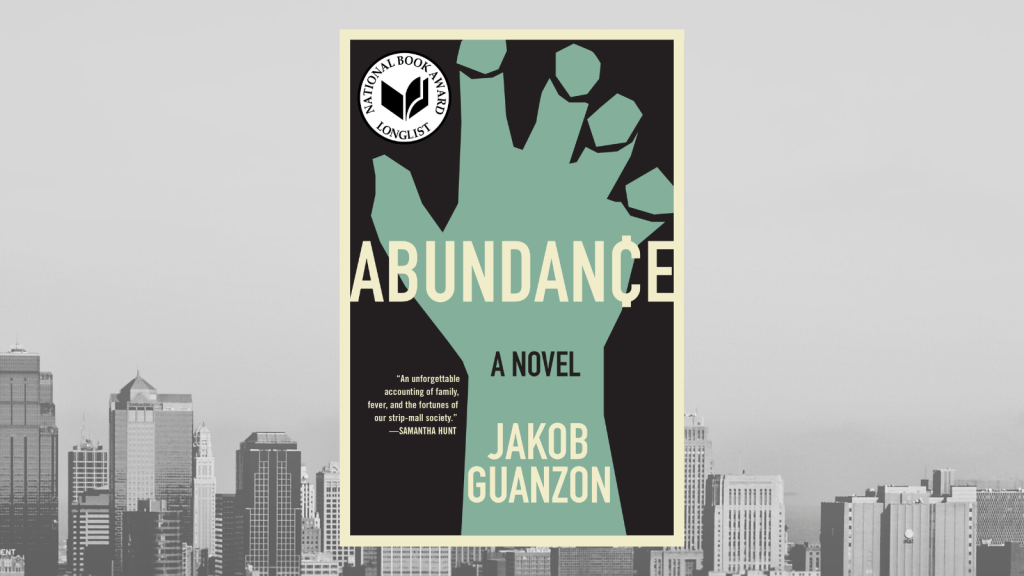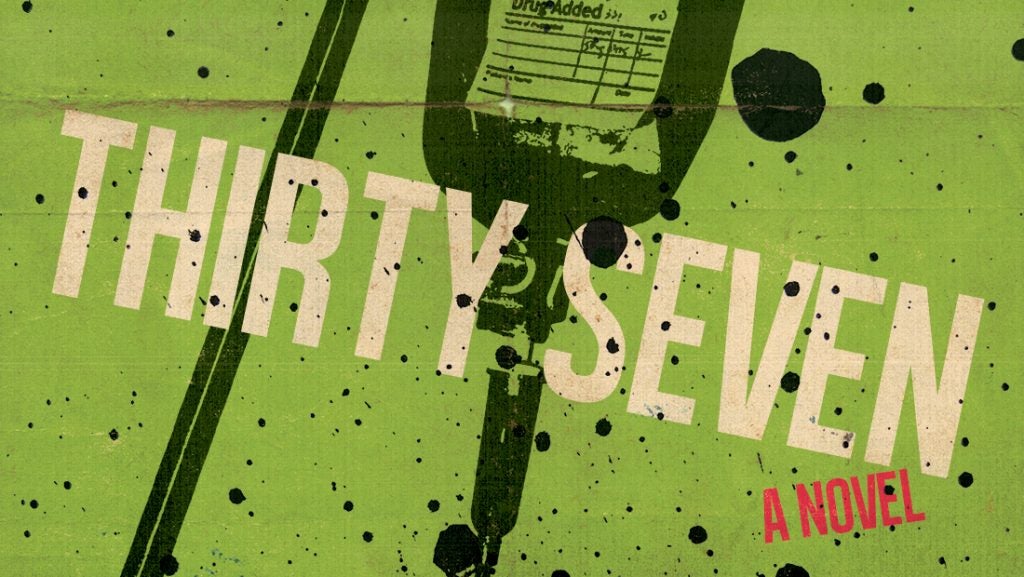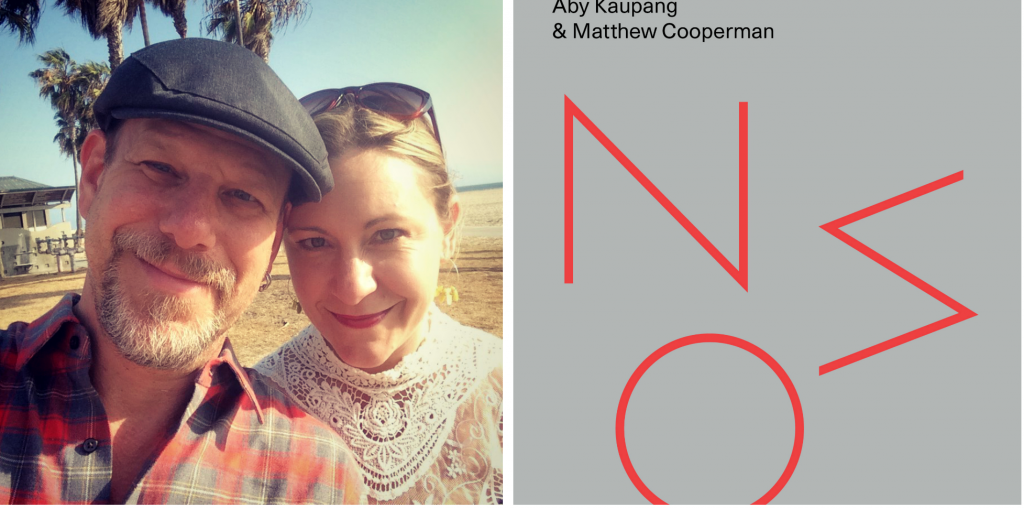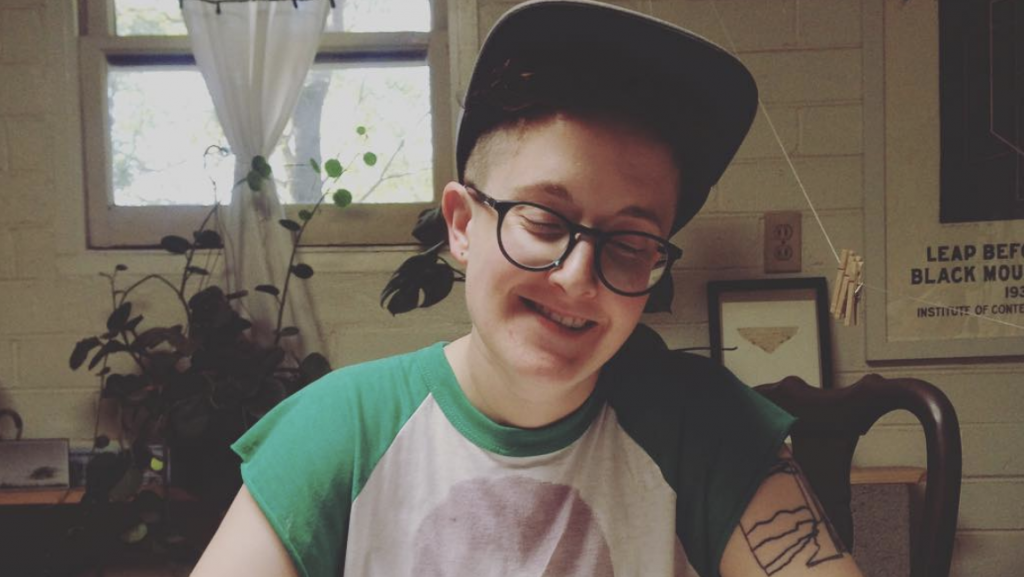Jakob Guanzon’s debut novel, Abundance, was longlisted for the National Book Award in 2021. Born in Manhasset, New York, Jakob grew up in Minnesota and holds an MFA from Columbia University. Jakob and I met through Zoom in February to chat about class, excess, and the writing and publishing process of Abundance.
Josh Olivier (JO): First, I just want to congratulate you on the novel—on having written something so smart and moving, and also the success the book is having. There’s so much that I admired about Abundance, but more than anything, maybe, I was really impressed by the choices you made in structuring the novel. The first thing a reader might notice is that the chapter titles tell the reader exactly how much money Henry, your protagonist, has at that particular moment of the narrative. Was that a structural conceit that you knew you would use from the first draft of the novel onward, or was that something you sort of stumbled into while working through the book?
Jakob Guanzon (JG): Yeah, that’s a great question. Oddly enough, that was the structural conceit that started the entire book. I didn’t know anything about the character, or, you know, the plot or anything when the idea came to me. I had just finished grad school, was looking for a job, and was completely broke. So, I was thinking a lot about money at the time. And I was, like, clocking, you know, down to the cent as well—which was just like, oh my gosh, having that exact awareness of how much money was in my checking account, how much I had in my pocket…it was just looming over me. And I thought, ‘this is an interesting structural conceit’ in that, you know, explicitly stating the amount of really quantified autonomy a character has by explicitly stating the amount of money they have.
I thought it would be a really interesting way of showing how money can—money does—limit the decisions that a person can make. I mean, whenever we talk about the craft of writing and writing plot, it’s always ‘decisions and conflict’—which drive drama, right? Well, I thought that this was a type of drama, or this would generate a sense of tension and drama, in a way that I had never seen done. I mean, of course, writing about poverty and financial struggles is nothing new to literature, but I had never read anything where I was made aware throughout the story of how much money, down to the cent, a character had. And so that’s what I wanted to experiment with.
JO: Similarly, I was curious if you started the novel thinking you would develop both the present narrative, with Henry and Jr., and then the flashback narrative that lends context to Henry’s earlier life. I was hoping you could speak to some of the technical challenges that structure brought and some of the lessons you learned while writing and shaping the book.
JG: It’s really fun to think about that, because before I knew where I was going with this book, I didn’t think I had the chops for a novel. I was just not feeling that confident about my writing. And so I really wanted to keep it compact and condensed.
I usually write short stories that are around six- to seven-thousand words, and so that’s what I was trying to keep everything down to. I was really determined to have it be a ‘day in the life’ kind of story, which it ultimately is: the present-track of the novel is just about 24 hours. But once I gave myself the green light to go, ‘Let’s do this, man, let’s just go for a novel,’ which didn’t occur to me personally, it was a friend who had pointed it out, you know, seeing the mess of all these pages scattered across my floor. My friend said, ‘This is a novel.’ Then I thought, ‘Yeah, man, I think you’re right. I’m just gonna go for it.’
And so, as far as the structure went, I had the basic arc of the present tense kind of sketched out in my head before I even dove into the past. I was maybe halfway through the present-track of the narrative when I decided to do the novel and started thinking it would be really useful to illustrate how this character had gotten into this position—because he starts in a fairly middle class situation as a child, and I wanted to show that there’s still a lot of precarity in what might ostensibly seem like a stable upbringing, right? I wanted to show how precarious that kind of security can be, how one bad decision can ruin a family and livelihood, and how those consequences are also generational.
So, really, it was a matter of tracking those moments in the present track, where I thought questions would be coming up in a reader’s mind, and also what snippets and scenes could help inform both what a reader has already read, and subsequently inform the following passages. Because I already knew it was coming in the present tense. And I also wanted to keep the past tense part linear fashion, as well. So, that first chapter, it’s ‘$0.00’ the day his father picks him up for rehab. I thought that price tag for the chapter would be pretty striking, and you know, kind of cue the reader. It’s like, ‘Oh, what, what’s happening here?’ and then we’re bringing [the reader] to Henry on his 16th birthday and all of the past-tense arcs that follow. While temporally there’s quite a bit of flux in terms of gaps, they’re all linear. And so that arc wrote itself in a really interesting way, because I wasn’t quite sure where to go with it. So, having seen the relationship with Michelle, and then what was going on with the opioid epidemic in the country at the time in the mid 2010s, I thought, ‘There’s a lot of important subject matter here to explore here in fiction.’ So that’s where I went with it.
JO: You mentioned that feeling of financial precarity, and the novel seems to suggest that there’s something about financial precarity that allows for a deeper appreciation of and awe for life. I’m thinking of the great line, ‘Sustained deprivation turns even the most commonplace amenities into luxury.’ I was wondering if you could speak on that idea.
JG: I think the driving question for this entire novel, for me, once I kind of pinned down the character and the situation etc., was, ‘What does it mean for a single human being, specifically an American, who…like, how do they make sense of their…how do they justify their own sense of worth, when the most commonplace components of survival are denied them?’ When part of our narrative as a nation is, ‘This is your birthright: a life of comfort, a comfy house, and not only that, but a house chock full of trinkets and gadgets and upgraded goods that are delivered right to your doorstep by Amazon Prime for convenience.’ Like, you know, both material comfort and convenience are your birthright in this country: this is how we grow up, this is what we’re told, this is how we project ourselves to the world.
And yet so many Americans are denied this. So how does this person [Henry] reconcile their own experience? And through no failure of his own. I mean, Henry’s a hard worker. He’s made mistakes, but he’s a hard-working dude. He’s got that rugged individualism. But try as he might, he can’t get ahead. And I think that’s a very familiar situation for a lot of people. I mean, yep—I’ve been there. For sure.
JO: Abundance and excess are used intermittently throughout the novel, and I was hoping you could elaborate on how you define each word. Where do those concepts overlap and how do they differ?
JG: What a phenomenal question. I haven’t gotten that one. I’m not going to do it justice, Jesus. Let me think here. Excess and abundance? Well, I’m inclined to start by saying that abundance has a positive connotation in English and yet I don’t think it’s a virtue. I don’t believe that. Abundance of anything, you know, be it money, be it land, even love, can be really problematic, because when you have a plethora of something, it is inevitably excess. If you’re not going to use it, it always veers into overriding your awareness of what you’re depriving by keeping something else in your possession. Like, by possessing, by claiming property, and even on ideals, right? That, by default, excludes it from you know, the commons, or establishes some sort of barricade to your awareness of what else is going on and in the world, how other people are doing. And that’s when we would find the word excess, which has a connotation that acknowledges how problematic amassing a whole bunch of stuff can be.
I hope you’re able to parse that out—it’s a great question, and I’ll be thinking about it.
JO: It’s interesting because you’re right: there is that positive connotation to abundance in our vernacular, right? There’s almost a warmth to it. ‘A great abundance of love.’ Abundance is almost presented as something you’re supposed to hope and strive for. When you hear excess, you think of something bubbling to an unnecessary extreme. But at the end of the day, you’re right, they do mean the same thing.
I’m thinking now of the earlier part in the novel, when Henry is sort of dumbfounded by the plasma display of a McDonald’s menu. I’m wondering if that’s something you were thinking through—how advancements in technology have deepened our expectations of excess and abundance? Or like, how developments in technology immerse us further in a sort of dystopian capitalism?
JG: Whoa. Good question. You’re the first person who’s asked me about that moment, and I thought that moment was really interesting, because it was a personal observation, which I snuck into the novel after moving back from Spain to the states and seeing how much had changed in the span of five years.
I remember stepping into McDonald’s and being like, ‘What? Look at this menu. This is insane.’ I was really surprised by it. I had visited the states for Christmas, but I hadn’t gone to McDonald’s and hadn’t seen that ubiquity of television. And I don’t know about you, but I am utterly helpless when it comes to screens. I cannot be trusted with the screen when I’m writing, for example. Screens are just very enticing. And I wasn’t really aiming for any kind of, like, techno dystopia by invoking that particular image, but I think it is a really great observation on your part, because that moment in the novel is a nod to the pervasiveness of messaging; of, you know: ‘buy more, pay attention, look at this.’ All of these distractions pervade throughout society, and they really do inhibit the general public from looking at their neighbors and thinking, ‘Oh, man, this guy’s struggling.’
JO: What are you working on now?
Jakob
JG: I’m like this close to finishing my second novel. It started as a satire, and it remains a satire, but I would call it a gray satire, because it’s not, you know, like, ‘slap you in the face’ kind of humor. And, essentially, it’s a triptych novel in structure, in that it is three novellas that sort of overlap. The central questions that drive each of these characters is, ‘What is the best means to affect progress in society? What can the individual do?’
So the first character is a left-wing radical, who’s, you know, plotting some pretty evil and violent stuff. But he’s a complete buffoon, so he’s my clown character who is plotting a revolution in the middle of the Sequoia National Forest. The central character, the middle character, is a moderate who’s working for the Swedish EPA. He has to rely on compromise and negotiations, and, you know, adhering to the pre-existing annals of bureaucracy to drive progress very incrementally. And the third character is this billionaire philanthropist, who is a complete narcissist, who is dying, and who is just trying to save face before he goes. So that’s where that’s at. And I… can’t wait to be done with the novel, because I’ve been working on it for like four years at this point.
JO: I was wondering, too, if you could speak on the publishing process for Abundance. Any joys, difficulties, whatever you want to elaborate on.
Jakob
I think the hardest part for me was finding an agent. Like, I am so bad at hustling and pitching. I’m just too self conscious about that kind of stuff. And I just can’t do the elevator pitch. So finding an agent took the hugest weight off of my shoulders. And when my agent went out with it, he was feeling really confident about the book. And so I was like, ‘Oh, really? Great.’ Then the book was rejected by just about everybody, and so it came down to, like, three houses. But my agent was so psyched that Graywolf was interested, because this would have been his first time working with them. And, you know, I didn’t pay attention to publishing prior to this point of my life, you know? I just read books. I don’t pay attention to the endgame. So I was like, ‘Okay, cool!’ And I’m so damn grateful that we went with Graywolf, because they’re this very small, compact team, and they’re just committed to art. They took a big chance in this book, and you know, they’re a nonprofit, so they have the luxury of committing to things that might not sell the most copies, but that they give a damn about. That was so reassuring. They held my hand the entire step of the way, which I needed. I was a total noob and remain fairly, you know, bewildered by the entire process. And then the book did pretty well with its release here, and more and more good things keep coming. It was just released in the UK. Dialogue Books picked it up in the UK, which is a really phenomenal, independent press that focuses on BIPOC and working-class authors. And it’s getting translated now into six or seven languages. It’s all just beyond me. It’s really great.
JO: Last question: I’d love to know what you’ve been reading, and particularly if there are any lesser known writers whose work has been moving you of late.
JG: The last book that I read that I was really excited about was by Jesse Jezewska Stevens. I just read the galley for her second book, The Visitors, and even though it is set in the midst of the 2008 financial crisis, it kind of unravels into a dystopia, and a woman’s nervous breakdown. She’s just such a sharp writer. Every sentence stings, she’s so sharp. I mean, that kind of prose I’m always so jealous of. And then there’s also the fact that, you know, she’s able to provide social commentary and be witty, but also tap into great reserves of pathos throughout—it’s just, a beautiful, beautiful book, and I hope I hope people pick it up this summer.







